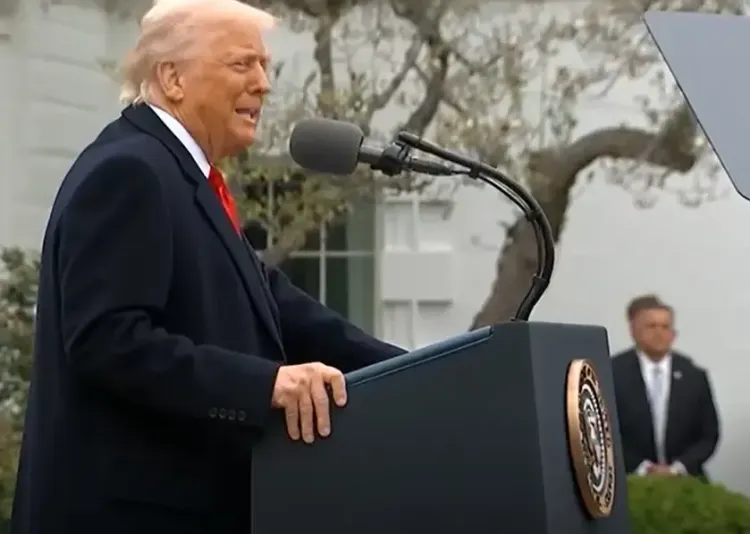Analysts Advocate for Cautious Strategy in Trump's Proposed Negotiation Package

Synopsis
Key Takeaways
- South Korea needs a careful negotiation strategy.
- Trump's 90-day tariff pause offers leverage.
- Consider security commitments alongside tariffs.
- North Korea's threats necessitate stronger U.S. defense support.
- Defense cost-sharing may require reevaluation.
Seoul, April 10 (NationPress) South Korea should adopt a careful and cautious stance in its discussions with the Trump administration regarding his proposed "package deal" focusing on tariffs and security matters, as experts emphasized the need to avoid rushing into such dialogues under the current acting leadership in Seoul.
According to experts, South Korea must thoughtfully evaluate what it can offer to the United States, alongside securing essential gains in return, such as an enhanced U.S. security commitment. Trump has declared a 90-day suspension on its "reciprocal" tariffs affecting South Korea and other nations, as reported by Yonhap news agency.
Trump has indicated that his administration will include various security and non-tariff issues in the negotiations, suggesting that the reduction of American troops stationed abroad, including in Europe and South Korea, could be part of the discussions.
His comments have fueled speculation that the U.S. under his leadership may introduce the defense cost-sharing agreement as a prerequisite for tariff negotiations with Seoul.
"Given the current acting presidency and the tariff pause, the focus should be on accurately assessing U.S. intentions and laying a strong foundation for the next government to respond strategically," stated Yang Uk, a research fellow at the Asan Institute of Policy Studies.
Yang noted that Trump's tariff proposals may present an opportunity for South Korea to obtain more substantial security assurances from the U.S. to counter North Korea's military threats.
"The escalation of North Korea's nuclear threats represents the most urgent challenge we face. In return, we could request the U.S. to contemplate redeploying its tactical nuclear assets to South Korea to strengthen our defense," he remarked.
Trump's statements followed his initial phone conversation with acting President Han Duck-soo on Tuesday, during which they discussed Seoul's "payment for U.S. military protection" and the "parameters and feasibility" of a deal for both nations that extends beyond trade and tariffs.
Some analysts argue that South Korea may need to consider increasing its share of defense costs if the Trump administration seeks to renegotiate the finalized agreement.
In October, Seoul and Washington agreed on the Special Measures Agreement (SMA), which stipulates that Seoul will pay 1.52 trillion won (around US$1.03 billion) next year for the stationing of the 28,500 U.S. Forces Korea (USFK), an increase from 1.4 trillion won this year.
Trump has referred to South Korea as a "money machine" and indicated during his presidential campaign that if elected, the U.S. ally would significantly increase its defense spending.
South Korea's situation is becoming increasingly tenuous as Trump has made the matters of cost-sharing and troop presence more explicit.
"Trump's unpredictable nature, as he often deviates from traditional frameworks, could potentially serve as an advantage and lead to a stronger security outcome for South Korea," Yang added.
While South Korea has expressed interest in discussing economic collaboration, including shipbuilding and potential participation in the U.S.' envisioned Alaska liquefied natural gas pipeline project, it insists that the defense burden-sharing agreement is a settled issue and distinct from tariff negotiations.









